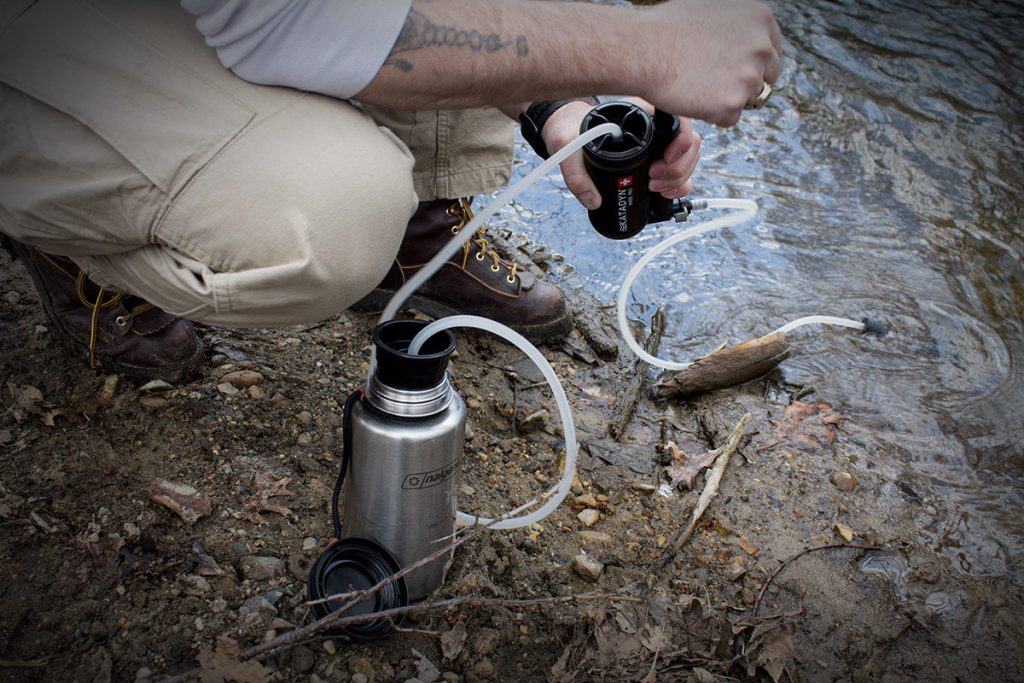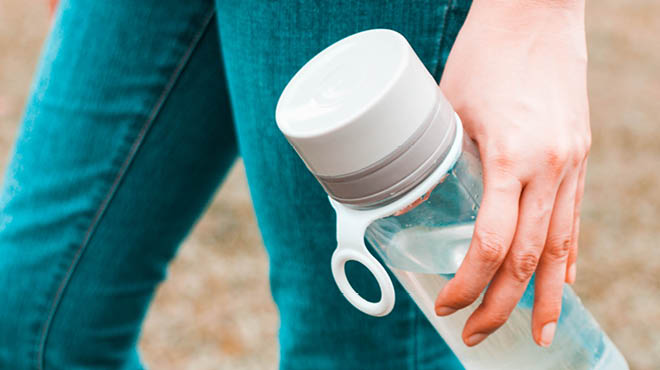This article discusses the importance of proper hydration and nutrition in survival situations. It highlights the key nutrients and hydration sources necessary for survival, the risks associated with dehydration and malnutrition, and practical tips for ensuring adequate hydration and nutrition in challenging situations.
In a survival situation, your body’s need for proper hydration and nutrition becomes critical. Whether you’re stranded in the wilderness, lost in the desert, or facing a natural disaster, access to clean water and nourishing food is essential for your survival.
The human body can only survive a few days without water, and even less without food. In this article, we’ll discuss the importance of proper hydration and nutrition in survival situations, the key nutrients and hydration sources necessary for survival, and practical tips for ensuring adequate hydration and nutrition in challenging situations.
The Importance of Hydration in Survival Situations

Water is essential for maintaining body temperature, lubricating joints, transporting nutrients, and removing waste from the body. Without enough water, your body cannot function properly, and dehydration can quickly set in.
In a survival situation, access to clean water may be limited or nonexistent, making dehydration a real risk. Symptoms of dehydration include thirst, dry mouth, dizziness, confusion, and fatigue. In severe cases, dehydration can lead to heat exhaustion, heat stroke, or even death.
Sources of Clean Water in Survival Situations
In a survival situation, finding clean water may be a challenge. However, there are several sources of water that you can access with the right tools and knowledge. These include:
- Surface water: streams, rivers, and lakes
- Rainwater: collected in containers or by using natural materials such as tarps or leaves
- Snow and ice: melted and purified using a filter or boiling
- Groundwater: accessed through wells or by digging
It’s important to note that not all water sources are safe to drink. Water can be contaminated with bacteria, viruses, and other harmful substances that can cause illness or even death. To ensure that your water source is safe, it’s important to purify it using a filter, boiling, or chemical treatment.
The Importance of Nutrition in Survival Situations
Proper nutrition is essential for maintaining energy levels, supporting immune function, and repairing damaged tissues. In a survival situation, access to nourishing food may be limited or nonexistent, making malnutrition a real risk. Symptoms of malnutrition include weakness, fatigue, dizziness, and loss of muscle mass. In severe cases, malnutrition can lead to organ failure, infection, or death.
Key Nutrients for Survival
In a survival situation, it’s important to focus on getting the nutrients your body needs to function properly. These include:
- Carbohydrates: provide energy for the body and brain
- Proteins: build and repair tissues, and support immune function
- Fats: provide energy, insulate the body, and support brain function
- Vitamins and minerals: support immune function, bone health, and other essential functions
Sources of Nutrition in Survival Situations
In a survival situation, finding nourishing food may be a challenge. However, there are several sources of food that you can access with the right tools and knowledge. These include:
- Wild game: hunted or trapped for meat
- Fish: caught from streams, lakes, or the ocean
- Edible plants: foraged from the wild or grown in a garden
- Insects: a good source of protein in many parts of the world
It’s important to note that not all sources of food are safe to eat. Some plants and animals can be toxic or cause illness if not prepared properly. It’s important to have knowledge of the local flora and fauna, as well as proper preparation and cooking techniques to ensure the safety and nutritional value of the food.
Risks of Dehydration and Malnutrition
Dehydration and malnutrition can have serious consequences for your health and survival in a survival situation. Dehydration can lead to electrolyte imbalances, heat exhaustion, and heat stroke, which can be life-threatening. Malnutrition can weaken the immune system, leading to an increased risk of infection, and can also cause fatigue and weakness, making it more difficult to carry out necessary tasks for survival.
Tips for Ensuring Adequate Hydration and Nutrition in Survival Situations
- Carry water purification tablets or a portable filter to ensure a clean water source.
- In hot climates, drink water frequently, even if you don’t feel thirsty.
- Avoid drinking alcohol or caffeine, which can dehydrate the body.
- Pack nutrient-dense foods such as nuts, dried fruit, and protein bars.
- Learn about the local flora and fauna, and how to identify edible plants and animals.
- Cook meat thoroughly to avoid illness from bacteria and parasites.
- Consider carrying a fishing kit or trap to catch fish or other small game.
The Importance of Electrolytes
Electrolytes are essential minerals such as sodium, potassium, and magnesium that help regulate fluid balance, muscle function, and nerve signaling in the body. In a survival situation, sweating, vomiting, and diarrhea can lead to electrolyte imbalances, which can cause weakness, cramping, and confusion. To prevent electrolyte imbalances, it’s important to consume foods high in electrolytes, such as coconut water, bananas, and sports drinks.
The Role of Hydration in Cold Environments
In cold environments, it’s important to stay hydrated even if you don’t feel thirsty. Cold air can be dry, leading to dehydration, and your body requires water to regulate body temperature and prevent hypothermia. It’s important to carry a thermos or other insulated container to keep water from freezing, and to pack foods high in calories and nutrients to maintain energy levels.
Hydration and Nutrition for Children in Survival Situations
Children have unique hydration and nutrition needs, and these needs can be even more critical in a survival situation. Children are more vulnerable to dehydration and malnutrition, and their bodies require more frequent hydration and nutrient intake than adults.
It’s important to pack foods and hydration sources that are appealing to children, such as fruit juice or flavored electrolyte solutions, and to monitor their hydration and nutrition closely.
The Importance of Mental Health in Survival Situations

Survival situations can be stressful, and stress can impact hydration and nutrition needs. Stress can increase cortisol levels, leading to dehydration, and can also suppress appetite, leading to malnutrition. It’s important to practice stress-reducing techniques such as deep breathing, meditation, or yoga, and to prioritize mental health as a key factor in survival.
Conclusion
In a survival situation, access to clean water and nourishing food is essential for your health and survival. Proper hydration and nutrition can prevent dehydration and malnutrition, which can have serious consequences for your health and well-being.
By focusing on key nutrients, hydration sources, and practical tips for staying hydrated and nourished in challenging situations, you can increase your chances of survival and maintain optimal health in even the most challenging of circumstances.
